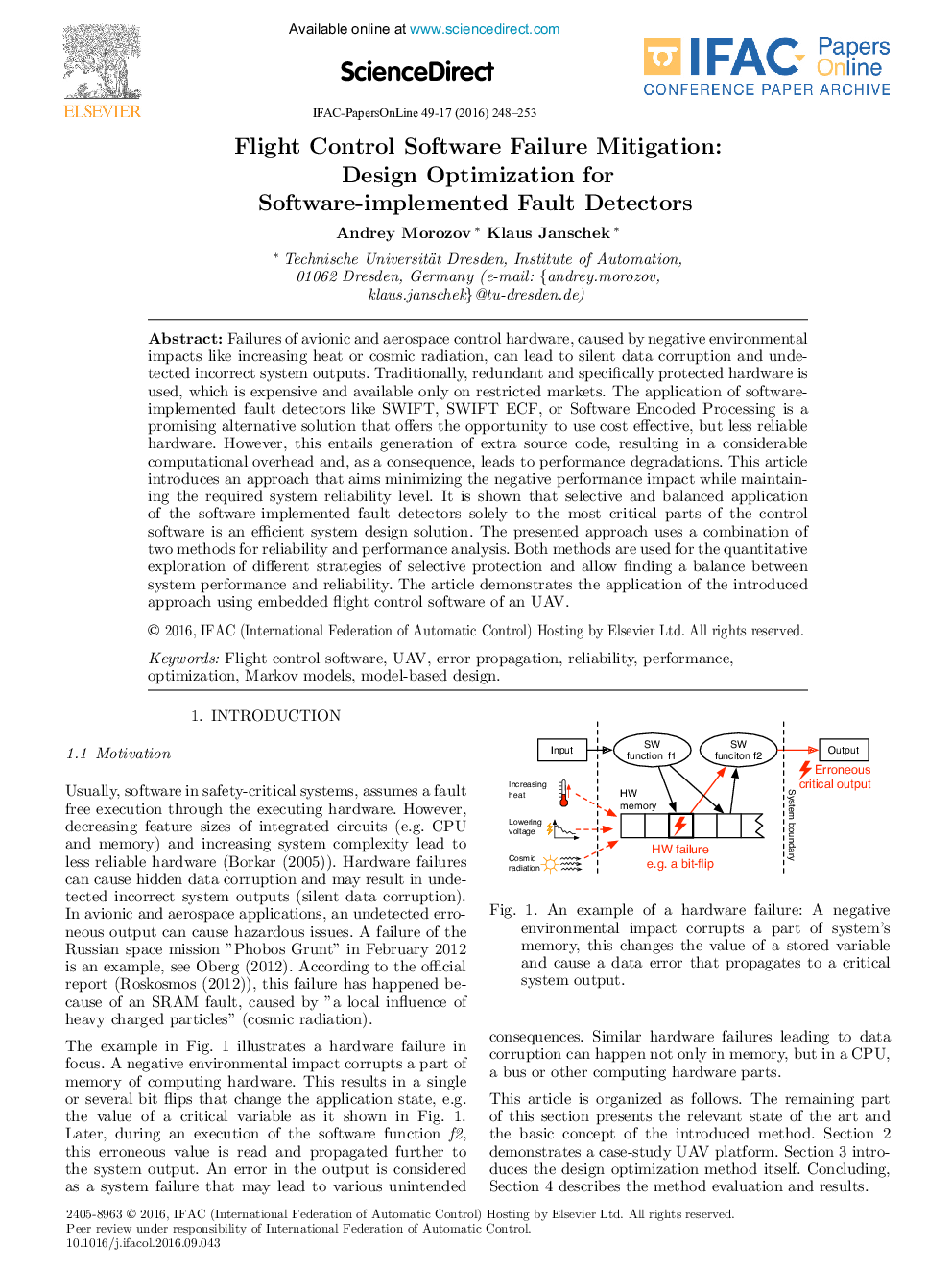| Article ID | Journal | Published Year | Pages | File Type |
|---|---|---|---|---|
| 5003061 | IFAC-PapersOnLine | 2016 | 6 Pages |
Abstract
Failures of avionic and aerospace control hardware, caused by negative environmental impacts like increasing heat or cosmic radiation, can lead to silent data corruption and undetected incorrect system outputs. Traditionally, redundant and specifically protected hardware is used, which is expensive and available only on restricted markets. The application of software-implemented fault detectors like SWIFT, SWIFT ECF, or Software Encoded Processing is a promising alternative solution that offers the opportunity to use cost effective, but less reliable hardware. However, this entails generation of extra source code, resulting in a considerable computational overhead and, as a consequence, leads to performance degradations. This article introduces an approach that aims minimizing the negative performance impact while maintain ing the required system reliability level. It is shown that selective and balanced application of the software-implemented fault detectors solely to the most critical parts of the control software is an efficient system design solution. The presented approach uses a combination of two methods for reliability and performance analysis. Both methods are used for the quantitative exploration of different strategies of selective protection and allow finding a balance between system performance and reliability. The article demonstrates the application of the introduced approach using embedded flight control software of an UAV.
Related Topics
Physical Sciences and Engineering
Engineering
Computational Mechanics
Authors
Andrey Morozov, Klaus Janschek,
